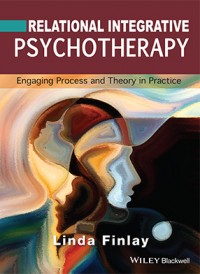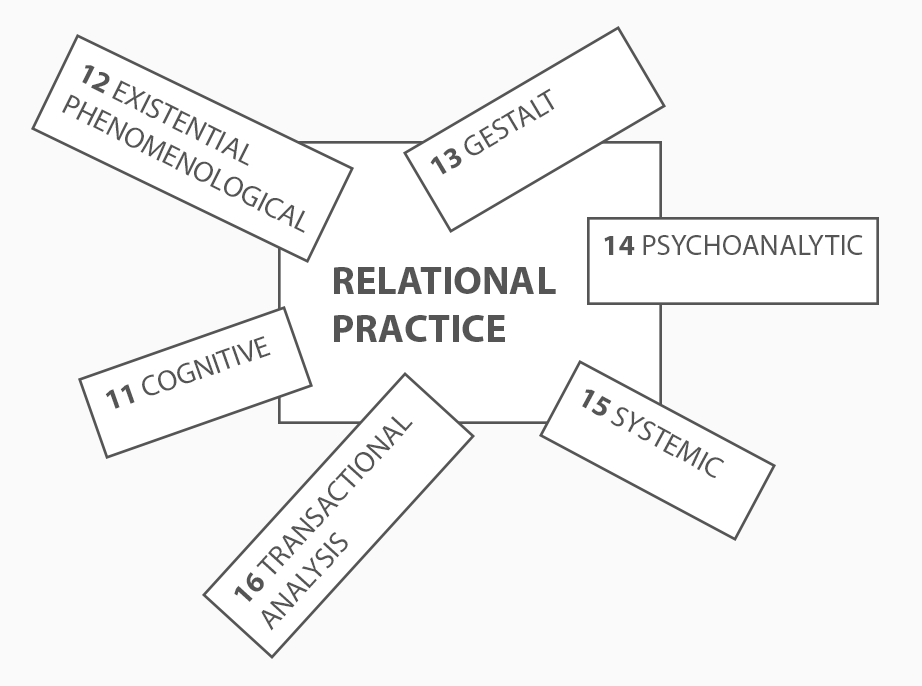
The chapters in PART II introduce key ideas associated with the different theoretical perspectives indicated in the figure above. To give a flavour of these chapters, I offer a handout on some key ideas underpinning each perspective which are applied in relational and integrative ways.
You’re welcome to take and use these handouts as resources (referencing them as appropriate). Of course they only skim the surface and I’d highly recommend following up some of the key names and references to get a deeper appreciation of the field.
Handouts
- Chapter 11 – Cognitive-Orientated Therapy (PDF)
- Chapter 12 – Existential Phenomenology – Theory and Therapy (PDF)
- Chapter 13 – Gestalt Theory and Therapy (PDF)
- Chapter 14 – Relational Psychoanalytic Theory in Practice (PDF)
- Chapter 15 – Systemic Theory and Therapy (PDF)
- Chapter 16 – Transactional Analysis (PDF)
Resources for working Cognitively in relational ways
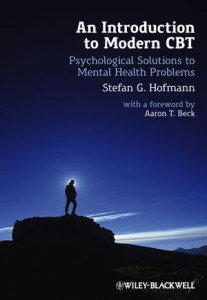 A comprehensive modern CBT resource books from the UK is: Hofmann, S.G. (2011). An Introduction to Modern CBT: Psychological Solutions to Mental Health Problems. Chichester, Sussex: Wiley-Blackwell.
A comprehensive modern CBT resource books from the UK is: Hofmann, S.G. (2011). An Introduction to Modern CBT: Psychological Solutions to Mental Health Problems. Chichester, Sussex: Wiley-Blackwell.
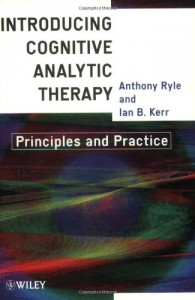 See: Ryle, A. & Kerr, I, B. (2002). Introducing Cognitive Analytic Therapy: Principles and practice. Chichester: John Wiley. This is a comprehensive text detailing more recently elaborations of this explicitly relational, integrative approach.
See: Ryle, A. & Kerr, I, B. (2002). Introducing Cognitive Analytic Therapy: Principles and practice. Chichester: John Wiley. This is a comprehensive text detailing more recently elaborations of this explicitly relational, integrative approach.
Numerous online sources are useful and convenient:
- When my clients are interested to know more about CBT, I refer them to various online sources such as: http://www.nhs.uk/Conditions/Cognitive-behavioural-therapy/Pages/Introduction.aspx .
- There are also many online resources for tapping into the positive psychology movement. See, for instance, http://news.bbc.co.uk/1/hi/programmes/happiness_formula/
- I recommend Puddicombe’s online mindfulness course. This is one I share with clients: https://www.headspace.com/
Resources for Existential-Phenomenology
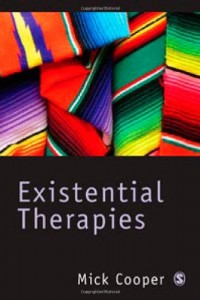 A clearly written introduction to different variants of existential therapy is: Cooper, M (2003). Existential therapies. London: Sage.
A clearly written introduction to different variants of existential therapy is: Cooper, M (2003). Existential therapies. London: Sage.
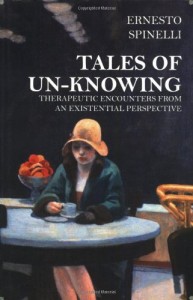 Tales of un-knowing, London: Duckworth, by Spinelli (1997) is one of my favourite therapy books. Spinelli offers eight readable ‘stories’ of therapy while interweaving points of existential phenomenological theory.
Tales of un-knowing, London: Duckworth, by Spinelli (1997) is one of my favourite therapy books. Spinelli offers eight readable ‘stories’ of therapy while interweaving points of existential phenomenological theory.
For a succinct but comprehensive account of British existential philosophy and therapy see: http://www.emmyvandeurzen.com/?page_id=25.
Listen also to van Deurzen’s (2013) essay on ‘Becoming an existential therapist’ on BBC Radio 3, available at: http://www.bbc.co.uk/programmes/b03hjw9f .
Also see the many YouTube videos available on different topics: for instance, Yalom giving supervision:
or talking about death:
Resources on Gestalt Theory and Therapy
There are many good gestalt books out there: I would recommend all the references I’ve made in my chapter especially:
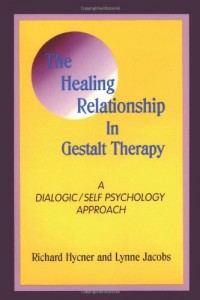 Hycner, R.and Jacobs, L.(1995). The healing relationship in gestalt therapy: A dialogic/self psychology approach.
Hycner, R.and Jacobs, L.(1995). The healing relationship in gestalt therapy: A dialogic/self psychology approach.
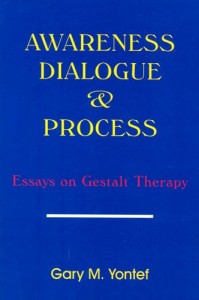 Highland, NY: Gestalt Journal Press and Yontef, G. M. (1993). Awareness, Dialogue, and Process: Essays in Gestalt Therapy.
Highland, NY: Gestalt Journal Press and Yontef, G. M. (1993). Awareness, Dialogue, and Process: Essays in Gestalt Therapy.
See also the comprehensive introduction to gestalt therapy by Yontef in: http://www.gestalt.org/yontef.htm.
Check out the British Gestalt Journal which has wide-ranging articles which are written in accessible ways.
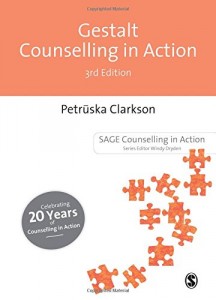 Clarkson, P.(1989). Gestalt Counselling in Action, 2nd Edition. London: Sage offers one of the clearest, most detailed accounts of the gestalt cycle and dysfunctions related to disturbances at the contact boundary with many examples and suggestions for therapeutic interventions.
Clarkson, P.(1989). Gestalt Counselling in Action, 2nd Edition. London: Sage offers one of the clearest, most detailed accounts of the gestalt cycle and dysfunctions related to disturbances at the contact boundary with many examples and suggestions for therapeutic interventions.
Resources for Relational Psychoanalytic work
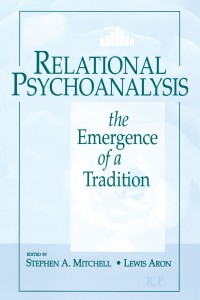 One of the classic relational psychoanalytic texts is: Mitchell, S.A.and Aron, L. (1999). Relational Psychoanalysis: The Emergence of a Tradition. Hillsdale, NJ: The Analytic Press.
One of the classic relational psychoanalytic texts is: Mitchell, S.A.and Aron, L. (1999). Relational Psychoanalysis: The Emergence of a Tradition. Hillsdale, NJ: The Analytic Press.
Casement’s two books about learning from the patient are wonderfully human but scholarly exploration of relational working which includes many good extended worked through examples of transference/projective identification as well as exploration of the essential role of the reflexive, internal supervisor. See:
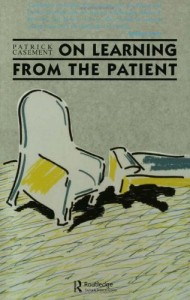 Casement, P. (1985). On Learning from the Patient. London.
Casement, P. (1985). On Learning from the Patient. London.
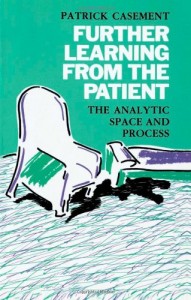 Routledge and Casement, P. (1990). Further learning from the Patient.London: Routledge.
Routledge and Casement, P. (1990). Further learning from the Patient.London: Routledge.
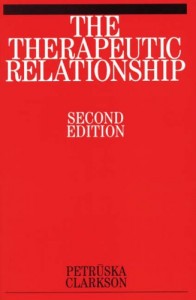 Check out Clarkson’s third and fourth chapters on transferential and reparative therapeutic relationships offer a clear account of relevant processes in Clarkson, P. (2003). The Therapeutic Relationship, 2nd Edition. London: Whurr Publishers.
Check out Clarkson’s third and fourth chapters on transferential and reparative therapeutic relationships offer a clear account of relevant processes in Clarkson, P. (2003). The Therapeutic Relationship, 2nd Edition. London: Whurr Publishers.
Susie Orbach’s (2012) YouTube interview offers a gentle introduction into what it means to work relationally with a psychoanalytic orientation – see: –
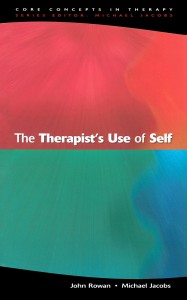 See: Rowan & Jacobs (2002). Therapeutic use of self. Buckingham: Open University Press. This book offers a comprehensive discussion of humanistic theory around the use of the ‘authentic’ self in therapy which includes embodied counter-transference, intuition and projective identification.
See: Rowan & Jacobs (2002). Therapeutic use of self. Buckingham: Open University Press. This book offers a comprehensive discussion of humanistic theory around the use of the ‘authentic’ self in therapy which includes embodied counter-transference, intuition and projective identification.
Resources for Systemic practice
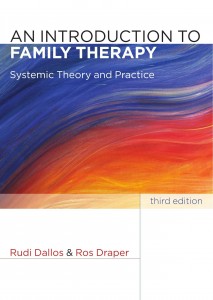 See: Dallos, R. and Draper, R. (2010). An Introduction to Family Therapy: Systemic Theory and Practice, 3rd Edition. Maidenhead, Berks: Open University Press. This comprehensive text offers a clear overview of systemic theory and practice.
See: Dallos, R. and Draper, R. (2010). An Introduction to Family Therapy: Systemic Theory and Practice, 3rd Edition. Maidenhead, Berks: Open University Press. This comprehensive text offers a clear overview of systemic theory and practice.
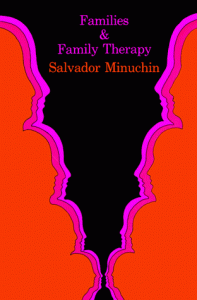 Minuchin’s seminal book offers a fascinating glimpse into family structure, process and therapy – Minuchin, S. (1974). Families and Family Therapy. Boston: Harvard University Press.
Minuchin’s seminal book offers a fascinating glimpse into family structure, process and therapy – Minuchin, S. (1974). Families and Family Therapy. Boston: Harvard University Press.
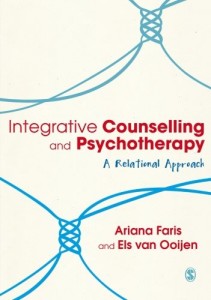 A number of integrative psychotherapy texts locate their model of working within a systemic perspective. Check out: Faris, A. and van Ooijen, E.(2012). Integrative Counselling and Psychotherapy: A Relational Approach. London: Sage.
A number of integrative psychotherapy texts locate their model of working within a systemic perspective. Check out: Faris, A. and van Ooijen, E.(2012). Integrative Counselling and Psychotherapy: A Relational Approach. London: Sage.
Resources for Transactional Analysis
There is a huge amount of TA literature on the internet complete with lots of colourful diagrams. Watch out for the overly trivialised accounts and turn to credible sources for information such as:
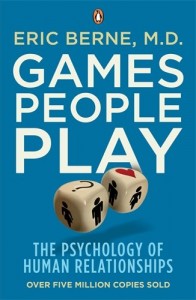 The international best seller that captured the imagination of the masses is Berne, E. (1964). Games People Play: the Psychology of Human Relations. New Jersey: Grove Press.
The international best seller that captured the imagination of the masses is Berne, E. (1964). Games People Play: the Psychology of Human Relations. New Jersey: Grove Press.
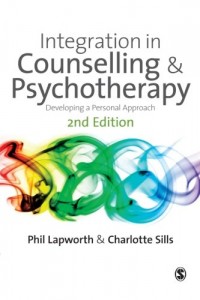 A useful introduction to relational work in diverse fields is: Lapworth, P. and Sills, C. (2010). Integration in Counselling & Psychotherapy: Developing a Personal Approach, 2nd Edition. Los Angeles: Sage.
A useful introduction to relational work in diverse fields is: Lapworth, P. and Sills, C. (2010). Integration in Counselling & Psychotherapy: Developing a Personal Approach, 2nd Edition. Los Angeles: Sage.
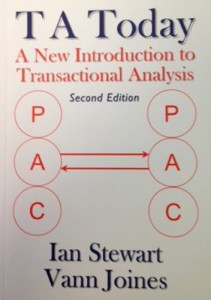 See also: Stewart, I. and Joines, V. (1987). TA Today: A New Introduction to Transactional Analysis, 2nd Edition. Nottingham: LifeSpace Publishing. This basic primer lays out the basic theoretical concepts in an accessible way.
See also: Stewart, I. and Joines, V. (1987). TA Today: A New Introduction to Transactional Analysis, 2nd Edition. Nottingham: LifeSpace Publishing. This basic primer lays out the basic theoretical concepts in an accessible way.
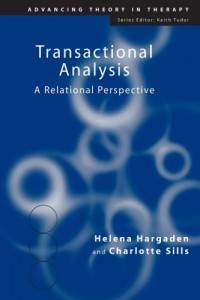 And also: Hargaden, H. and Sills, C.(2002). Transactional Analysis: A Relational Perspective. London: Routledge. This offers seriously indepth theoretical discussion with practical case studies for the advanced practitioner.
And also: Hargaden, H. and Sills, C.(2002). Transactional Analysis: A Relational Perspective. London: Routledge. This offers seriously indepth theoretical discussion with practical case studies for the advanced practitioner.
Also check out respected websites such as:
